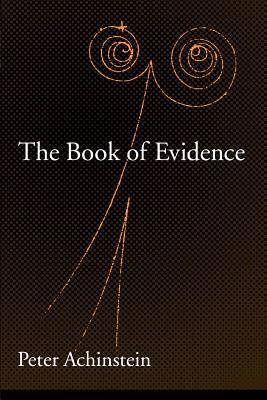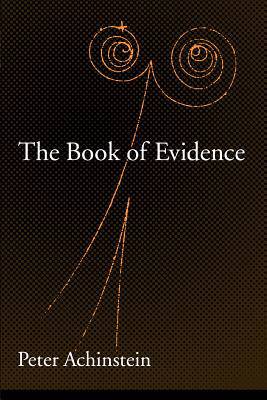
Bedankt voor het vertrouwen het afgelopen jaar! Om jou te bedanken bieden we GRATIS verzending (in België) aan op alles gedurende de hele maand januari.
- Afhalen na 1 uur in een winkel met voorraad
- In januari gratis thuislevering in België
- Ruim aanbod met 7 miljoen producten
Bedankt voor het vertrouwen het afgelopen jaar! Om jou te bedanken bieden we GRATIS verzending (in België) aan op alles gedurende de hele maand januari.
- Afhalen na 1 uur in een winkel met voorraad
- In januari gratis thuislevering in België
- Ruim aanbod met 7 miljoen producten
Zoeken
€ 140,95
+ 281 punten
Omschrijving
What is required for something to be evidence for a hypothesis?
In this fascinating, elegantly written work, distinguished philosopher of science Peter Achinstein explores this question, rejecting typical philosophical and statistical theories of evidence. He claims these theories are much too weak to give scientists what they want--a good reason to believe--and, in some cases, they furnish concepts that mistakenly make all evidential claims a priori.
Achinstein introduces four concepts of evidence, defines three of them by reference to "potential" evidence, and characterizes the latter using a novel epistemic interpretation of probability. The resulting theory is then applied to philosophical and historical issues. Solutions are provided to the "grue," "ravens," "lottery," and "old-evidence" paradoxes, and to a series of questions. These include whether explanations or predictions furnish more evidential weight, whether individual hypotheses or entire theoretical systems can receive evidential support, what counts as a scientific discovery, and what sort of evidence is required for it. The historical questions include whether Jean Perrin had non-circular evidence for the existence of molecules, what type of evidence J. J. Thomson offered for the existence of the electron, and whether, as is usually supposed, he really discovered the electron. Achinstein proposes answers in terms of the concepts of evidence introduced.
As the premier book in the fabulous new series Oxford Studies in Philosophy of Science, this volume is essential for philosophers of science and historians of science, as well as for statisticians, scientists with philosophical interests, and anyone curious about scientific reasoning.
In this fascinating, elegantly written work, distinguished philosopher of science Peter Achinstein explores this question, rejecting typical philosophical and statistical theories of evidence. He claims these theories are much too weak to give scientists what they want--a good reason to believe--and, in some cases, they furnish concepts that mistakenly make all evidential claims a priori.
Achinstein introduces four concepts of evidence, defines three of them by reference to "potential" evidence, and characterizes the latter using a novel epistemic interpretation of probability. The resulting theory is then applied to philosophical and historical issues. Solutions are provided to the "grue," "ravens," "lottery," and "old-evidence" paradoxes, and to a series of questions. These include whether explanations or predictions furnish more evidential weight, whether individual hypotheses or entire theoretical systems can receive evidential support, what counts as a scientific discovery, and what sort of evidence is required for it. The historical questions include whether Jean Perrin had non-circular evidence for the existence of molecules, what type of evidence J. J. Thomson offered for the existence of the electron, and whether, as is usually supposed, he really discovered the electron. Achinstein proposes answers in terms of the concepts of evidence introduced.
As the premier book in the fabulous new series Oxford Studies in Philosophy of Science, this volume is essential for philosophers of science and historians of science, as well as for statisticians, scientists with philosophical interests, and anyone curious about scientific reasoning.
Specificaties
Betrokkenen
- Auteur(s):
- Uitgeverij:
Inhoud
- Aantal bladzijden:
- 304
- Taal:
- Engels
- Reeks:
Eigenschappen
- Productcode (EAN):
- 9780195171716
- Verschijningsdatum:
- 20/11/2003
- Uitvoering:
- Paperback
- Formaat:
- Trade paperback (VS)
- Afmetingen:
- 152 mm x 226 mm
- Gewicht:
- 453 g

Alleen bij Standaard Boekhandel
+ 281 punten op je klantenkaart van Standaard Boekhandel
Beoordelingen
We publiceren alleen reviews die voldoen aan de voorwaarden voor reviews. Bekijk onze voorwaarden voor reviews.









